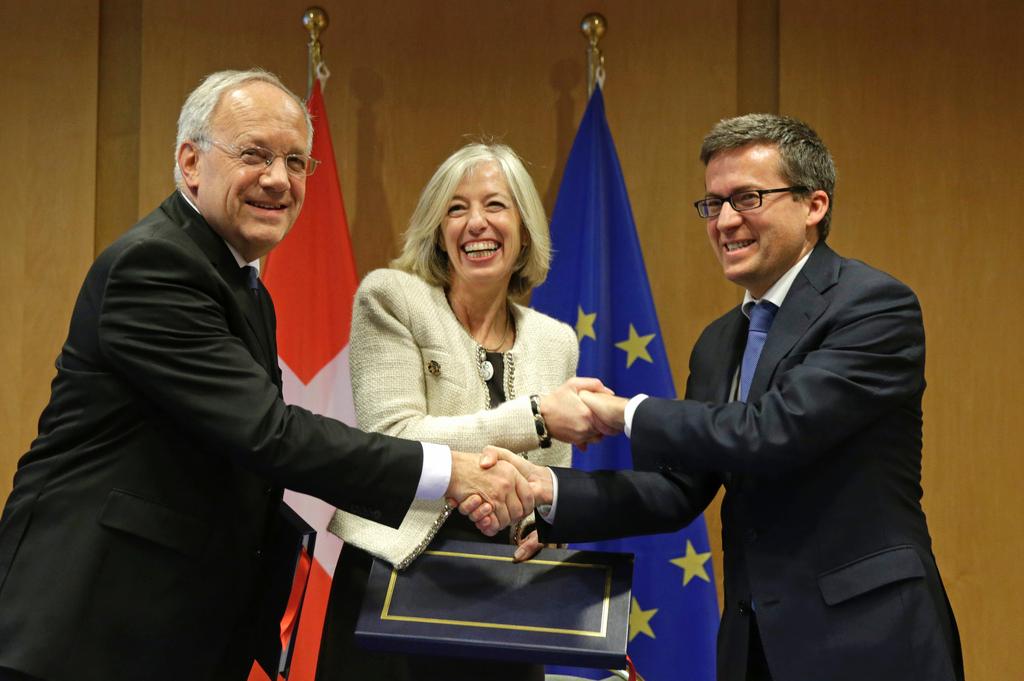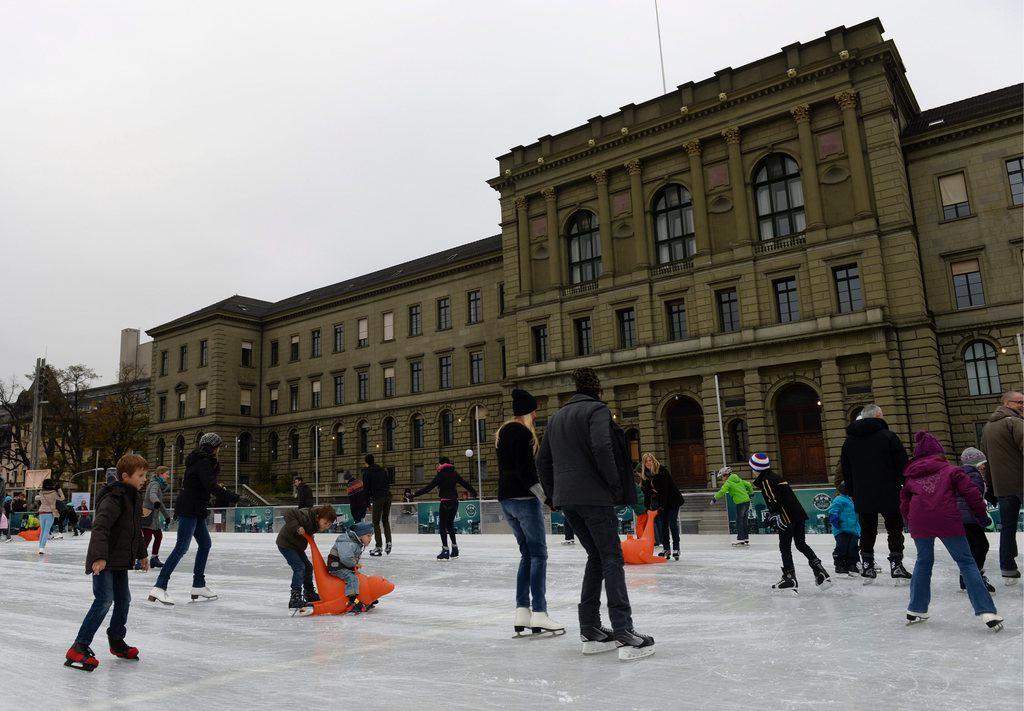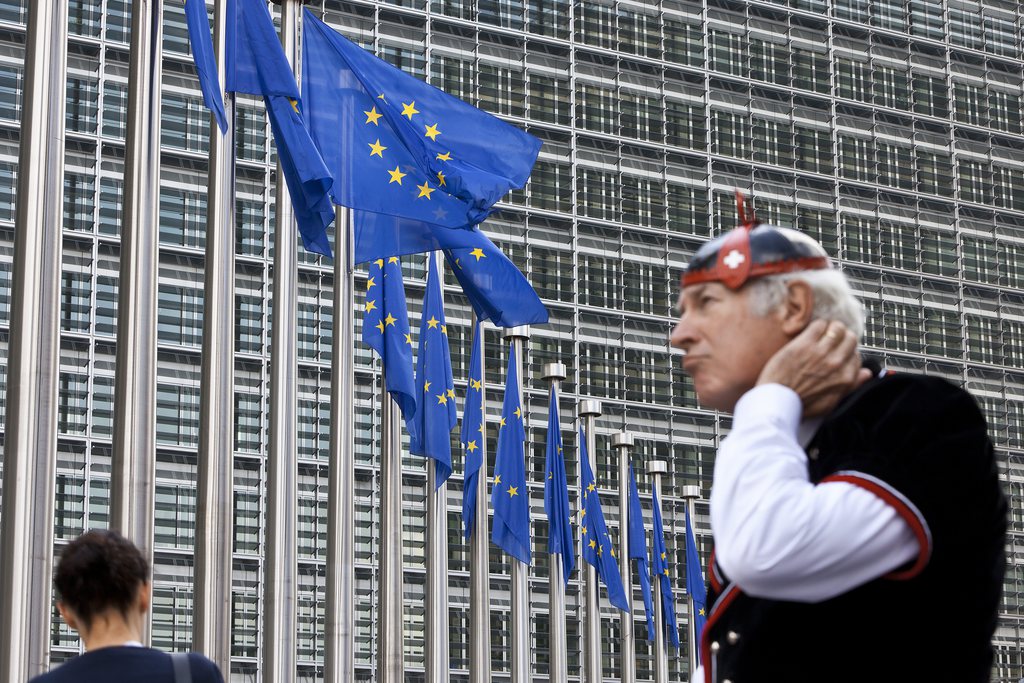Swiss sign partial Horizon 2020 deal

Switzerland has signed an agreement in Brussels allowing its researchers to - partially at least - participate in the European research programme Horizon 2020, from which they were excluded after a February vote curbing immigration from Europe.
Under its terms, researchers from Switzerland will be allowed to participate fully in selected parts of the Horizon 202External link0 until the end of 2016. After that the agreement provides for Switzerland’s full association – and access to funding – to the whole package on condition that a solution can be found regarding the free movement of persons.
Swiss Education Minister Johann Schneider-Ammann, who signed the deal in the Belgian capital on Friday, considers “the signing of the agreement to be an important step for Switzerland in securing international research cooperation”, according to a government statementExternal link. The country’s research activities must not be allowed to “lose touch” with its European counterparts.
“The goal is still to achieve full association for Switzerland from 2017,” the statement said.
Carlos Moedas, European Commissioner for Science, Research and Innovation also pointed to the importance of the deal for both sidesExternal link. “Furthermore, with this agreement Switzerland renews its commitment towards our longstanding and fruitful collaboration,” he added.
In detail
The partial association allows researchers in Switzerland to participate as equal partners in the first pillar of Horizon 2020, called Excellent Science which is aimed at boosting European research. Switzerland will be contributing an estimated €400 million (CHF481 million) to these programmes until the end of 2016, according to the EU.
However, for the second and third pillars: Industrial Leadership and Societal Challenges, Switzerland remains a ‘third country’ in EU eyes, like the United States or Japan. This means scientists can still join European collaborative projects, but they will not be entitled to any direct EU funding for their part.
The compromise, announced early September, actually came into effect on September 15, 2014 – despite the deal not yet being signed.
After 2016, Switzerland will either be fully associated to Horizon 2020 or it will only be able to participate as a third country.
As a result of the February vote in Switzerland, which called for an end to the free movement of people accord with the 28-nation bloc, the Swiss government announced it was putting on ice an extension to the accord to the latest EU member Croatia.
The EU reacted with the Horizon 2020 freeze and it says that participating beyond 2016 will depend “Swiss measures to ensure the non-discrimination of Croatian citizens and researchers”.

In compliance with the JTI standards
More: SWI swissinfo.ch certified by the Journalism Trust Initiative


You can find an overview of ongoing debates with our journalists here. Please join us!
If you want to start a conversation about a topic raised in this article or want to report factual errors, email us at english@swissinfo.ch.